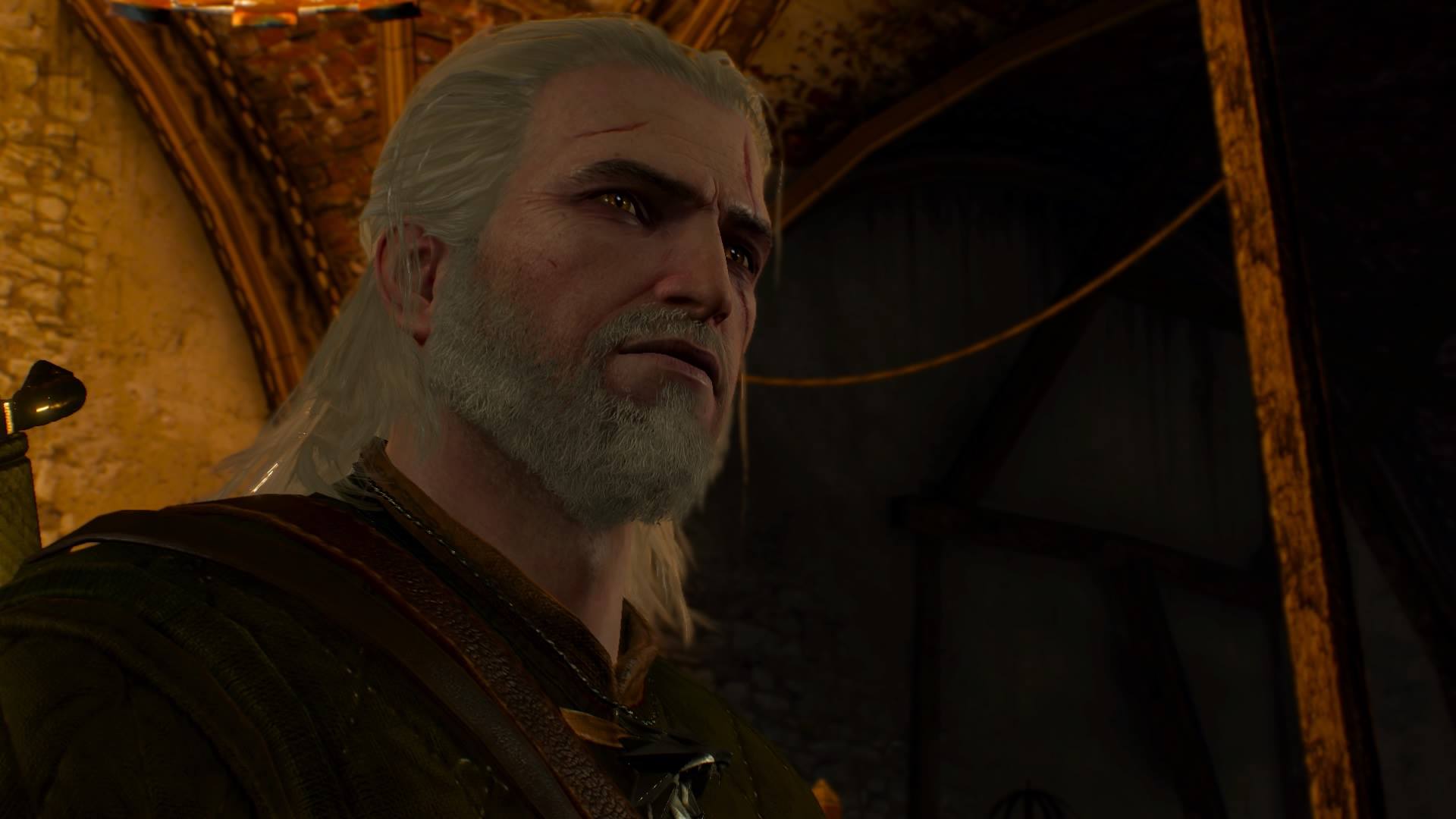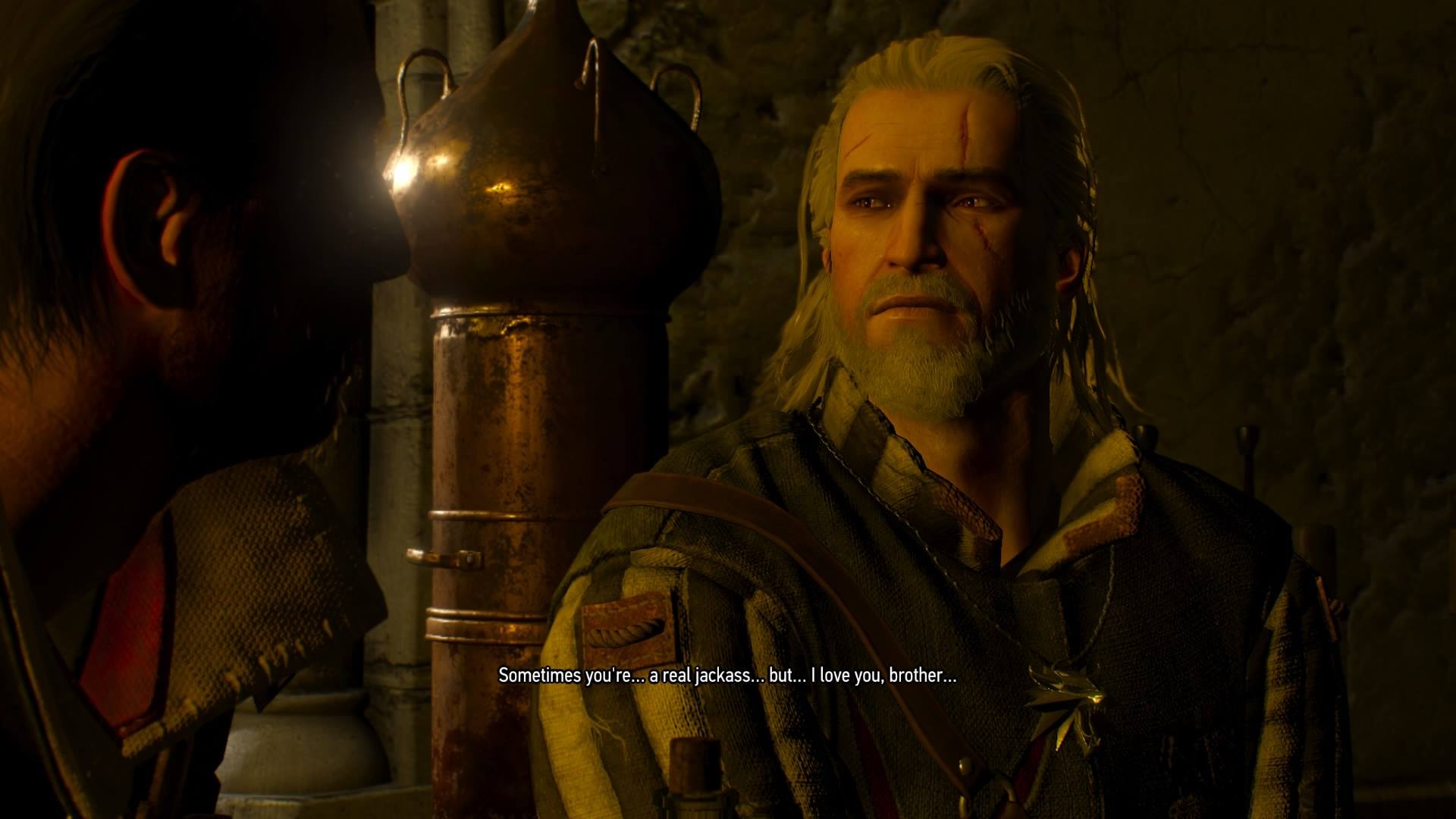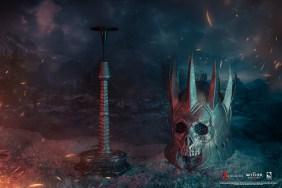I’ve always enjoyed reading the book after I see the movie. I’m never disappointed that way.
Like a flatiron applying heat, I smoothed over the inconsistencies between J.K. Rowling’s frizzy-haired, buck-toothed Hermione and the straight-haired, straight-smiling Emma Watson of the screen.
I saw The Fellowship of the Ring when I was seven; I read J.R.R. Tolkien’s trilogy in college. For me, Peter Jackson’s Middle-earth is canon. Tolkien’s stories are a fun alternative take.
And, while fans complained when he was cast, Josh Hutcherson will always be my mental image of Katniss Everdeen’s son-of-a-baker boyfriend. Same goes for R-Patz.
I feel differently, however, as I make my way through Andrzej Sapkowski’s The Witcher books, the saga from which CD Projekt RED’s massive RPGs draw their name, characters, and setting. Having played 60 hours of The Witcher 3: Wild Hunt, in August I decided to jump into the books. Since thenI have since finished the two short story collections, The Last Wish and Sword of Destiny, that serve as an introduction to The Continent, and I am mostly done with Blood of Elves, the White Wolf’s first novel-length adventure.
I’m frustrated and intrigued by the Witcher I’m meeting on the page. Geralt of Rivia, I thought I knew you.
Good Witcher, Bad Witcher
My Geralt is a nice guy; amicable unless he has good reason not to be. The Geralt of the page is pricklier. He frequently calls his buddy Dandelion a fool. When his adopted daughter Ciri acts up as a child, he threatens to spank her. My Geralt smiles warmly, conveying a kindness I have fostered through my decisions. But, Sapkowski describes Geralt’s grin as “ugly” and “hideous.” I tend to avoid confrontation and have created a character who mirrors this sensibility. Sapkowski’s witcher frustrates this impulse at every turn.
Some of the cognitive dissonance I’m experiencing is due to the fact that it’s rare to play a game that’s been directly adapted from a book. Usually, Hollywood serves as middleman and works to set our expectations.
Movies in the Middle
When I played EA’s The Lord of the Rings: Return of the King action-RPG on GameCube, I compared its virtual Minas Tirith to the one Ian McKellen, Viggo Mortensen, and Orlando Bloom fought through on screen; not the one that existed on the page. The game’s cutscenes (which were an amalgam of footage from the movie and in-engine animation) and unlockable behind-the-scenes interviews with the cast encouraged this comparison. There was too much remove for me to be concerned with the books at all. CD Projekt RED’s The Witcher games, by contrast, draw straight from Sapkowski’s well.
But, mostly, the sense of strangeness that punctuates moments of my time with these books is a result of The Witcher 3’s status as the preeminent example of wide-scale player choice executed in a AAA setting. Player choice molds Geralt’s personality and radically alters the course of action he pursues through the events of The Witcher 3. The player, assuming the role of Geralt, enters into a dialogue with CD Projekt RED, molding and shaping Geralt to be a combination of who they want him to be and who CD Projekt RED will allow him to be.

A Novel Approach
Geralt on the page is deeply human, and as a result, a mixture of apparently contradictory characteristics. He’s tough, but kind; a violent man with a penchant for introspection; a witcher who, by all accounts, should be stripped of emotion, but who cares deeply for the people in his life. As a player, I’m given the opportunity to shape the radar chart, tugging in whichever direction my heartstrings direct. I can go all-in on being an asshole—opt for violence whenever possible, refuse to tip a messenger boy, falsely tell Emhyr var Emreis that Ciri said he was a bad father—or I can do the same with kindness, transforming Geralt into a soft-hearted rhetorician who will rarely resort to causing bloodshed. All of this is Geralt, sure, but all of it is also me.
By contrast, the Geralt of Sapkowski’s fiction has been shaped by one person: Andrzej Sapkowski. There is no dialogue between author and readers here; we as readers have no say in who the Rivian becomes. While CD Projekt RED’s Geralt is malleable, Sapkowski’s witcher is as rigid as the invented code he claims to follow. The prose doesn’t change based on how much meanness we can stomach.

My Geralt is a cold-blooded killer. The Geralt of the page rarely kills sentient beings, and never takes life without good reason. He prefers a stubborn neutrality that often frustrates those around him. I, though, kill because my delusion stat isn’t high enough to convince some goons to leave me alone. Geralt is disciplined, and created by an author’s disciplined hand. I come to the game for enjoyment, and pick the options that will provide it.
My Geralt is a weaker character for it. He’s also significantly more like me.








